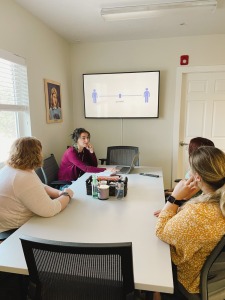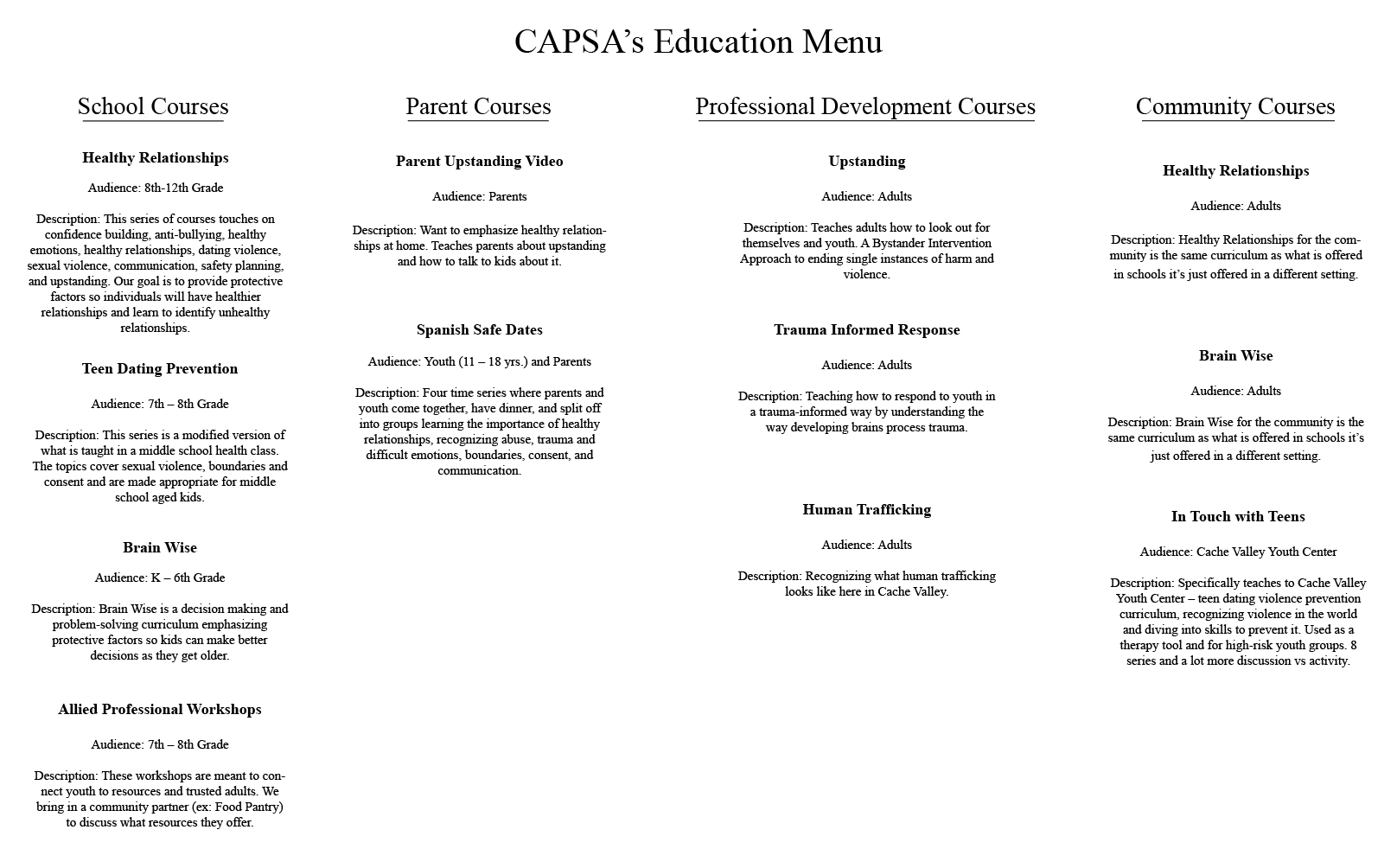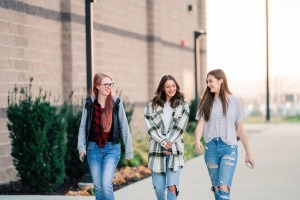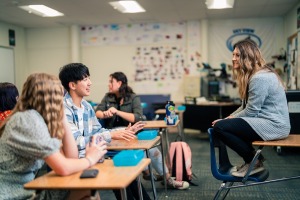As our educators spend time teaching in schools, they see the direct impact of the lessons they’re teaching and how students are responding to them. A couple of our educators have shared some stories and experiences where they feel their efforts in teaching about healthy relationships is paying off.
Shellie, Education Director
“I love teaching Healthy Relationships! There is nothing better than having a moving discussion with youth where they are able to identify the behaviors that they themselves and those around them display. Teaching healthy relationships allows students to recognize how they can continue to have healthy behavior and to adjust behavior that could be potentially harmful. In teaching healthy relationships, we get the opportunity to prevent potential future victims, but also future perpetrators.
An experience I had many years ago still burns clearly in my mind. After teaching a class at a local school, one of the students I had interacted with over a number of presentations approached me to share that she was concerned that she had never been in love. I was aware that this student was in a committed relationship from previous comments she had made and I asked her why she felt that way. She told me that she and her boyfriend had never had a screaming and yelling fight that they needed to have a passionate make up after. This student didn’t have great examples of relationships at home, so she had turned to songs and movies that displayed “love” such as The Notebook, or the Taylor Swifts Song, The Way I Loved You, to define what love looked like. Media had set the expectation that these unhealthy behaviors were the goal to be reached in a relationship. This was a prime example of the need for healthy relationships curriculum to be taught for youth.”
Lindsey, Educator
“The healthy relationships curriculum is important because it, in my opinion, is one of the best foundational skills youth and everyone really can learn and grow into in order to feel safe, respected, have equal power and control in their relationships–which we know prevents violence. They learn to recognize warning signs of unhealthy relationships and the building blocks to a healthy relationship. Obviously, a person can know all of these skills and still unfortunately find themselves in unhealthy and abusive relationships, but hopefully they will be able to recognize when they are in it and the resources to help them get out of that relationship and that it isn’t their fault.
I really love seeing the “aha” moments when I teach healthy relationships because “love” is often portrayed as this toxic, unhealthy obsession and persistence with a person. We see it in movies and music and books, if nothing else, this curriculum helps them be more aware as they are interacting with others and in relationships with others.”
Ashley, Educator
“One reason teaching about healthy relationships is important is because most kids and youth are unfortunately surrounded by unhealthy relationships or relationship behaviors- whether this is at home, amongst peers, in the media, or all of the above. Abusive and unhealthy behaviors are too often normalized in our society. By letting kids know these behaviors are not “normal” and teaching them the characteristics of a healthy relationship we help them realize that they deserve a healthy relationship themselves. They are better able to recognize red flags and warning signs and to look for the characteristics that make up a healthy relationship. Healthy relationships then lead to less abuse and violence in our communities.”




